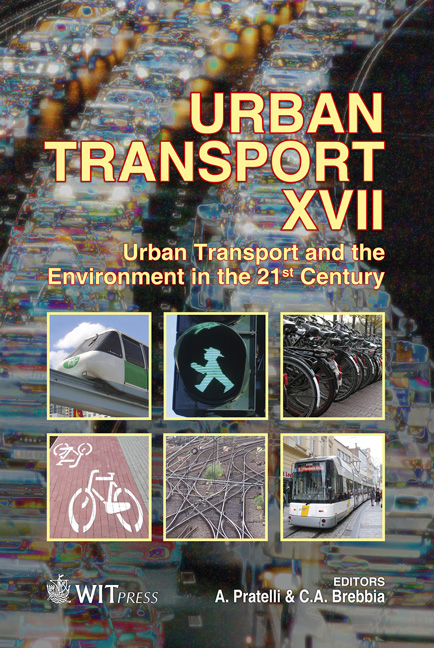Assessing Speed Enforcement Policy Measures By Analyzing Multi Sustainability Criteria
Price
Free (open access)
Transaction
Volume
116
Pages
12
Page Range
689 - 700
Published
2011
Size
3,104 kb
Paper DOI
10.2495/UT110581
Copyright
WIT Press
Author(s)
L. Vermote, F. Van Malderen, C. Macharis & K. Putman
Abstract
Sustainability assessment is generally used to identify the unsustainable effects of policy measures, such as sustainable transport policy strategies. Still, sustainability effects of road traffic safety policy measures are insufficiently studied. This paper will assess the sustainability of speed enforcement policy measures on highways. A multicriteria evaluation framework, containing social, economic and environmental assessment criteria, evaluates different speed enforcement policy alternatives. The framework determines how the policy alternatives meet the criteria, ranking the policy alternatives according to their sustainability. Results show that intelligent speed enforcement strategies are more sustainable than automatic and manned speed enforcement strategies. Multicriteria analyses have proved to be very useful for assessing sustainability. They provide compromise solutions for conflicting objectives. Keywords: speed enforcement, sustainability assessment, multicriteria analysis. 1 Introduction Policy measures are generally used to accomplish objectives. However, many policy implementations imply unexpected effects. Policy evaluation can be significant to identify unexpected policy effects. Sustainability assessment is an evaluation instrument to identify policy effects, which considers the social, economic and environmental impact of policy measures. The sustainability assessment tool is commonly used to enhance sustainable decision-making on complex decisions, like sustainable transportation. Multiple studies show that sustainable transport policy measures influence social, economic and ecologic
Keywords
speed enforcement, sustainability assessment, multicriteria analysis





